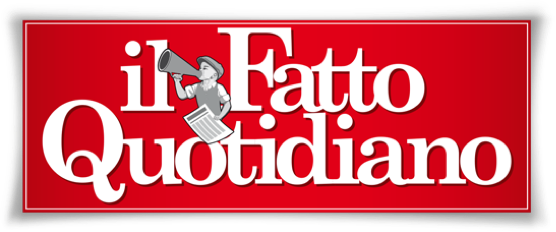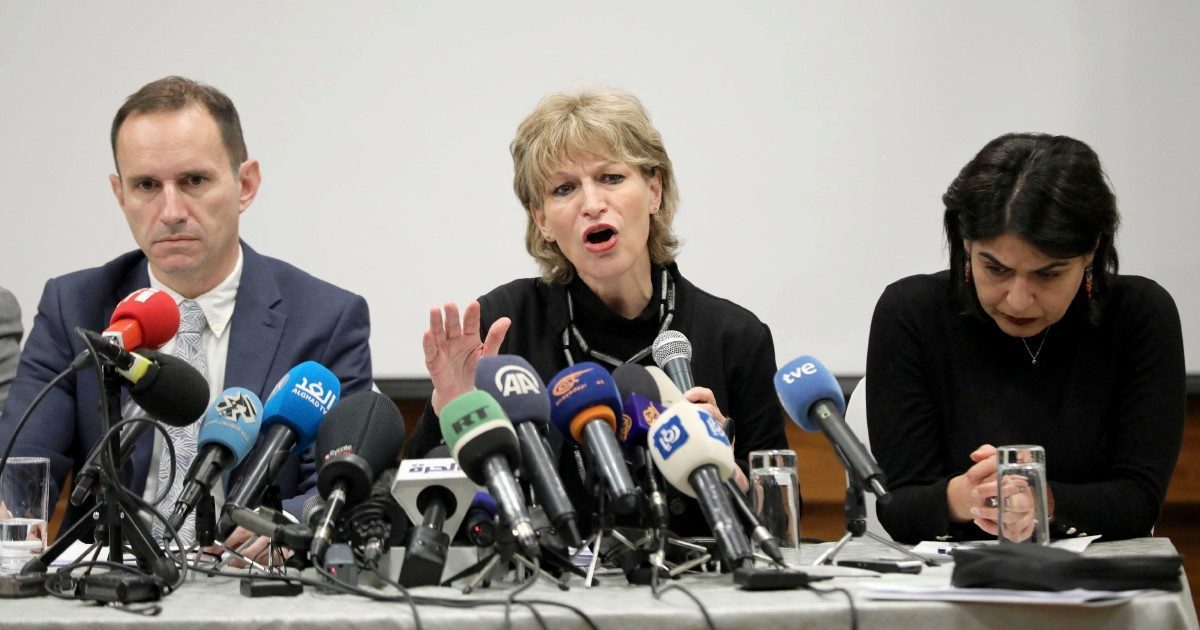Segregated into enclaves, discriminated against, dispossessed of their land and property, denied access to family reunification, reduced to grinding poverty, with their homes repeatedly destroyed. All Palestinians living under the control of the Israeli authorities – whether in Israel, the Occupied Palestinian Territories or in other countries as refugees, denied the right to return to their former villages – live under a system of oppression which constitutes apartheid. The UN Security Council must impose a comprehensive arms embargo on Israel and targeted sanctions against all Israeli officials implicated in the crime of apartheid.
This is not the conclusion drawn by a radical Palestinian rights campaign, but Amnesty International. Last week, the authoritative human rights organization released a report on Israel’s crime against humanity of apartheid, unleashing the fury of Israeli authorities, who completely reject it. Il Fatto Quotidiano sat down for an in-depth interview with Amnesty’s Secretary General, Agnès Callamard.
Could you describe Amnesty International’s attempts to discuss your findings with the Israeli authorities?
We do engage with the Israeli authorities, and in fact tried to engage with them, in October, on the report. In general, the relationship with the Israeli authorities is difficult. We have not had any really constructive engagement with them for many years, I would say, but I should also mention the fact that we do have a branch in Israel, and that they, sometimes, can engage with some authorities on some topics, such as asylum seekers for instance, but in general we have not been able to engage with the Israeli government on the findings of the report. We wrote to them in October, and they did not reply to us, and over the last weekend they initiated a campaign against the report, before it was launched.
You told CNN it was your first visit to Occupied Palestinian Territories and to Israel, on the occasion of this report. You said you were shocked at the extent of segregation you found. What was the most heartbreaking story?
I think what was most heartbreaking was not one story, in particular – although I will give you one – it is how the system has been normalized. It is the normalization of what should be abnormal, and how the system works by creating many, many layers of bureaucracy which seem to create a distance between the repression and the victim, and at each one of those steps, people lose a little bit more of their dignity, their hope. It is an incredibly cruel system, because of its absurdity, and its normalization. That is the first thing I want to say. When you are there and when you meet these people, when they describe their daily encounter with apartheid, that is what you get from them. The cruelty comes from the separation of families, comes from people fighting for years to prove that their land or their house is theirs, and failing all the time. The cruelty comes from Bedouin families in their so-called ‘unrecognized villages’ looking at – they can literally see their Jewish neighbors, not very far off, having access to all the services you would expect in an advanced economy, and they, they don’t. They have no schools, the water system costs them a fortune, very poor electricity, no access to doctors, hospitals, except far away. I recall the people, the families I met who were looking at the rubble of what was once their home, and I recall meeting individuals who had rebuilt their house five times, after it was demolished, because they don’t really have a choice, there is no other place for them to go. I think the story that struck me the most, maybe, [regarded] the young activists, young people particularly in the Occupied Territories, who from a very early age are witnesses to the repression, witness their parents being made to feel or to be second-class citizens, the daily insult of apartheid. Those kids witness it almost from the day they are born, they are raised with that, they fight it when they are of the age to do so, and by the time they are 20 years old, as someone put it to me, many of them have no idea that life can be beautiful. All they see is ugliness. And that’s who they are at 20 years old, fifteen, sixteen years old, I don’t know. That is very striking, and you feel it when you meet them, that for them there is only ugliness in their environment, they don’t know that life can be beautiful”.
Back in 2014, then-US Secretary of State, John Kerry, publicly apologized for referring to “apartheid” in relation to Israel. Eight years later, three major human rights organizations: Amnesty International, Human Rights Watch and B’Tselem, have concluded that Israel is committing the crime against humanity of apartheid. Why has the impossibility of exposing Israel’s apartheid finally become possible?
Hopefully we are having an impact. We, Amnesty, are coming late, we can’t take credit for it, but there is momentum building up in Israel itself, there is an awareness, and the work being done by Israeli organizations, including B’Tselem and others, and Palestinian organizations, have contributed to making it possible to speak about apartheid, they have basically made the jump for us. I don’t know whether we would have been able to do that, without the Israeli organizations doing it first, and the Palestinian organizations even earlier. They just broke the censorship, the iron curtain around the use of the word, and they said: we need and we must talk about it, and so there is a momentum building up. Last year the Human Rights Watch report made a major contribution, adding their evidence to it. We are doing the same, building on their work. We put together close to 300 pages of report, which I think are making it more difficult, for those prepared to engage with it, to just bullshit it off. Others are using the usual political propaganda posturing, but I think we are coming close to a tipping point, where it will be increasingly difficult for the international community to ignore the finding that there is an apartheid system, and that there is the crime against humanity of apartheid being committed.
Amnesty stressed that the apartheid system is not the same situation as in South Africa, but as with South Africa, unless we have strong international pressure, nothing will change. The problem is: if the Palestinian people fight the military occupation, it is terrorism. If the supporters of Palestinians support Boycott, Divest and Sanction movement, it is antisemitism. If Amnesty publishes a report on Israel as an apartheid state, Germany, Britain and the United States reject the findings. How can you exert international pressure in these conditions?
I think if you were a South Africa anti-apartheid activist, you faced the very same level of opposition for years and years. It took a long time for international pressure to build up against South Africa’s apartheid. I am not even sure the UK government took a very strong position against it. I don’t think it is unusual per se. Every repressive regime has its friends. It is complicated, because there is antisemitism in the world, and we cannot deny it, so that makes the fight more complicated and somehow also more important, but you are right that the system of apartheid in Israel is one that has many governments and actors. It is not that they are expressly in support of it, but they are certainly expressly not denouncing it and using all of the various methods you have mentioned: accusations of antisemitism, and so on, as their tools. That’s reality and that is what we need to fight against, that is why standing firm on the findings of the report, talking about apartheid, talking about the fact that the Palestinian people live under a system of oppression and domination: we need to be repeating those findings and to present evidence of them. And we need to stand firm and strong against any act of antisemitism the world over. I see absolutely no contradiction here: we must be able to denounce human rights violations wherever they are, whoever commits them. If it is the state of Israel committing them, we must stand firm, if it is a politician in Hungary committing them, we must stand firm, if it is a presidential candidate in France that wants to revise history, let’s stand firm. That is who we are as an organization: impartial, authoritative, evidence-based.
Do you think it will take another 20 years to have strong international pressure?
We certainly need to hurry up, because the way land and communities in the West Bank, Palestinian lands and Palestinian villages in the West Bank are disappearing and being crushed, is going very quickly, very fast. We definitely don’t have 20 years. That I can foresee very clearly. It’s incumbent upon the international community to take a much firmer stand if there is any hope of a peaceful resolution to the right of self-determination of both the Palestinian and the Jewish people.
My last question is about you. In recent years you have worked on extremely hard assignments, like investigating the killing of Jamal Khashoggi. Now you are at the forefront of this report. I suppose you have many enemies. What drives you?
You haven’t mentioned my investigation into Alexei Navalny, the work on the drone killing of general Soleimani, the investigation into the shooting down of the Ukrainian flight by the Iranian government, which killed 175 people, and of course the extrajudicial killings by the president of the Philippines. That’s part of who we are, as human rights activists. There are a few places where I don’t think I am welcome, but many others that welcome me and understand what I am doing and that I am not targeting anyone in particular: it is just part of what we must do to protect our entire world from walking towards an abyss. The reality of the world now is that the trends are extremely negative: we see a multiplication of conflicts, we see society at war with itself, we see the rise of populism, racism, antisemitism, islamophobia. Covid has highlighted the deep, incredibly cruel inequality within our society, and I could name many other problems, climate change being at the top of it all. We as Amnesty International and others, individually and institutionally, must do everything we can to protect our world from walking toward an abyss of increasing violations, increasing hatred and possibly even an international war we haven’t seen for a long time. We can’t be a repeat of the 1930s generation that led the world to World War II and the Holocaust.
Is that what drives you?
At the meta level, yes. Because I currently see many elements, indicators in the world that I think we could have found in the 1930s, multiplied in fact because of climate change, because of the crisis in the capitalist system. What drives me on a daily basis is much more human, the encounter with cruelty, the encounter with repression, the encounter with fighters and wanting to be part of them and to fight shoulder to shoulder with them.

